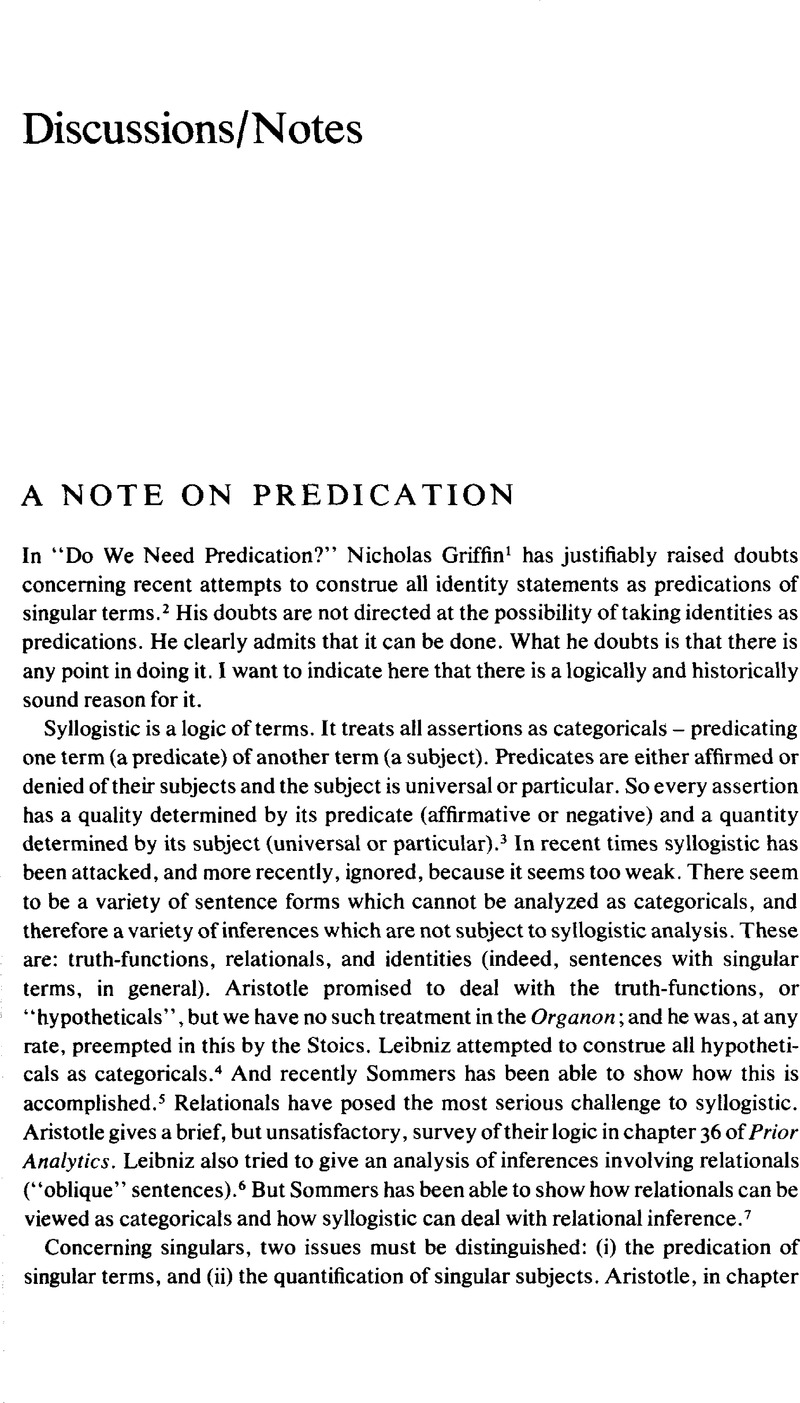Published online by Cambridge University Press: 05 May 2010

1 Dialogue, 16 (1977), pp. 653–663.CrossRefGoogle Scholar
2 Sommers, F., “Do We Need Identity?” Journal of Philosophy, 66 (1969), pp. 499–504CrossRefGoogle Scholar; and Lockwood, M., “On Predicating Proper Names,” Philosophical Review, 84 (1975), pp. 471–498.CrossRefGoogle Scholar
3 This was Aristotle's theory, at least. I have discussed it in detail in “On Propositional Form,” Notre Dame Journal of Formal Logic, 21 (1980), pp. 101–110.CrossRefGoogle Scholar
4 Leibniz: Logical Papers, ed. Parkinson, G.H.R. (Oxford, 1966), p. 66.Google Scholar
5 See: “The Calculus of Terms,” Mind, 79 (1970)Google Scholar; “On Concepts of Truth in Natural Languages,” Review of Metaphysics, 23 (1969)Google Scholar; and “The Logical and the Extra-Logical,” Boston Studies in the Philosophy of Science, 14 (1973)Google Scholar.
6 Parkinson, pp. 88–89.
7 See especially “The Calculus of Terms.”
8 Parkinson, p. 115.
9 See especially “On a Fregean Dogma,” Problems in the Philosophy of Mathematics, ed. Lakatos, I. (Amsterdam, 1967)Google Scholar, and “Do We Need Identity?”
10 Most clearly in “The Calculus of Terms.”
11 I have examined this process in Three Logicians: Aristotle, Leibniz, and Sommers and the Syllogistic, Van Gorcum, forthcoming.